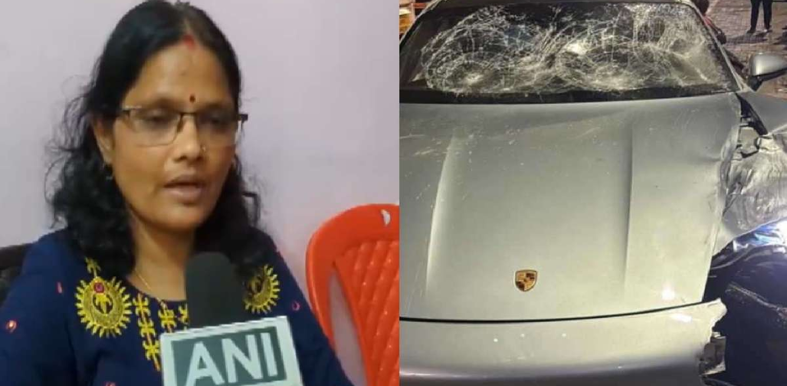The recent tragic crash involving a Porsche driven by a drunken minor in Pune has stirred a nationwide debate over the legal and social ramifications. For many, it highlights the perils of allowing minors to drive and serves as a crucial test for the country’s justice system. Questions of whether privilege will enable the teenage driver to evade severe punishment are rife. However, for two families in Madhya Pradesh, the incident represents an unfillable void and endless sorrow.
Anish Awadhiya and Ashwini Koshta, both 24-year-old engineers, had left their small-town homes filled with dreams. On that fateful night, while returning from meeting friends in Pune, a high-speed Porsche, driven by a heavily intoxicated 17-year-old, rammed into their bike.
The impact was devastating. Eyewitnesses reported that Ashwini was hurled 20 feet into the air before landing hard, while Anish was thrown against a parked car. Both succumbed to their injuries on the spot.
In Jabalpur, Ashwini’s mother Mamata Koshta remains in a state of shock. “We were supposed to send her off in a ‘doli’ (bridal palanquin) after her wedding, but we were forced to carry her ‘arthi’ (bier),” she told a news agency, her voice breaking. Mamata’s anguish is compounded by a burning desire for justice. “The minor boy and his parents should receive stringent punishment.
They did not raise him properly and should never have given him the car,” she asserted, reflecting on the 17-year-old driver now held in an observation home as the Juvenile Justice Board deliberates on whether he will be tried as an adult.
The police reported that the teenager was driving the Porsche at approximately 200 km per hour. Initial bail conditions set by the Juvenile Justice Board, which included writing a 300-word essay on road accidents and undergoing traffic rule education, were widely criticised as insufficient. “Is it a joke? What essay will he write? A joke is playing out,” Mamata Koshta expressed her frustration. Ashwini was described as exceptionally talented and full of dreams by her grieving mother.
In another part of Madhya Pradesh, Savita Awadhiya, Anish’s mother, struggles with her grief. “He killed my son. Now, I will never be able to meet my son. It is the boy’s mistake; you can call it murder,” she said, appealing to the Maharashtra government for justice. Anish, who aspired to pursue MBA, was remembered for his cheerful disposition and responsibility toward his family.
Anish’s father Om Awadhiya spoke of the irreparable loss. “The culprit will get punishment… But how can we bring back our child now? He spoke to his mother two days before the accident and promised to come home soon. He was a significant support for the family,” he said, expressing concern for his younger son who lived with Anish in Pune.






